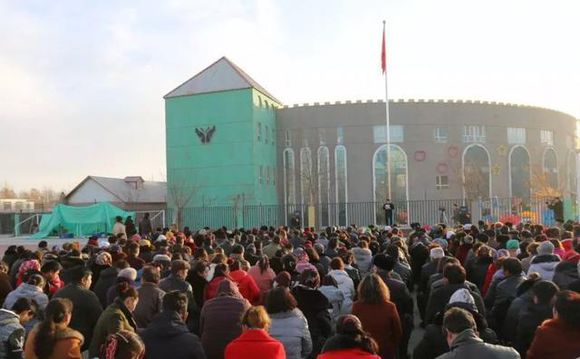China steps up efforts to forcibly integrate ethnic minorities
In March, China watchers riveted their attention on amendments to the constitution, especially the one that lifted term limits for the presidency, to see if Xi Jinping would be made president for life. But there were other amendments that attracted little, if any, attention.
One introduced the concept of zhonghua minzu, or “Chinese nation” or “China’s peoples”, into the constitution.
Hitherto, the constitution had emphasized China’s status as a multiethnic country, with Han Chinese as the majority. Han Chinese account for 93 percent of the population, with Tibetans, Koreans, Uighurs, Mongols, Manchus and other members of 55 minority groups making up 7 percent.
Now, it seems, the emphasis is shifting to the term “Chinese nation”, emphasizing unity of all ethnic groups, as distinct from “the Chinese people of all nationalities,” which stresses diversity.
Historically, China was invaded and ruled for hundreds of years by outsiders. The Mongols invaded China in the 12th century and ruled for almost a century. The Manchus overran China in the 17th century and ran the country for almost 300 years. But descendants of these invaders have been absorbed into the Chinese population.
Sun Yat-sen, the revolutionary who led the movement to set up China’s first republic, talked about expelling the alien Manchus from China. In the end, however, the republic accepted Mongols, Manchus and others as part of the Chinese family. The Communists continued this policy.
At the closing ceremony of the Congress in March, Xi delivered a speech in which he said: “Over the past thousands of years, the Chinese people have been united and stuck together through thick and thin. We have built a united country with various nationalities, developed harmonious relationships between 56 diverse, interwoven ethnic groups, formed a big Chinese family where they keep watch for and help defend each other.”
China’s acts, however, contradict its words. The Xinjiang region, which accounts for a sixth of China’s territory and is home to the Muslim Uighurs, has been in virtual lockdown. Hundreds of thousands of Uighur Muslims have reportedly been forcibly sent to so-called centers for “vocational skills training” but which are no different from re-education camps, complete with barbed wire and guard towers. They are under pressure to give up their religion as part of an effort to integrate them into the Han Chinese population, led by an atheistic Communist Party.
Almost daily, news leaks about Uighurs returning home from overseas who immediately disappear, presumably into re-education camps. Last Friday, Amnesty International reported the disappearance of Guligeina Tashimaimaiti, the only Uighur student at the University of Technology in Malaysia who had just finished her master’s thesis with honors and had been accepted into the university’s Ph.D. program.
The 31-year-old woman had been studying in Malaysia since 2010 and had come under pressure to return to China. She left Malaysia on 26 December 2017 and disappeared in China.
Within Xinjiang, repression is extreme. During Ramadan, Han Chinese move into the homes of their Uighur colleagues to make sure that they are not fasting or praying. Uighur schools are being shut to enforce integrated education, with classes taught in Chinese.
In May, Ma Rong, a professor at Peking University, in an article in the official People’s Daily, made it clear that China wants ethnic minorities to identify with China, its culture and with the Communist Party and to give up their own customs, including their religious beliefs.
Actually, many minorities have been absorbed by the Chinese. The Manchus, for example, overlords of the country for almost three centuries, have largely lost their own identity. According to UNESCO, of the 10 million Manchus in China, there are only 10 native speakers of Manchu.
Few people know that the famed concert pianist Lang Lang is of Manchu ethnicity. He, like most Manchus today, speaks Chinese.
But the Muslim Uighurs and the Buddhist Tibetans have refused to be absorbed into the Han population. There is a very long distance to go if China wants them, too, to identify with China and the Chinese culture, since they have their own language and culture.
If it is to happen, it can only happen gradually, not as a result of repression. This is an area where soft power is the only way to go. It will take patience and decades of good governance to persuade ethnic minorities that Han Chinese are worth emulating.
Meanwhile, China should remember that its constitution promises in Chapter One: “All ethnic groups have the right to use and develop their own spoken and written languages and to preserve or reform their own folkways and customs.”
Source:http://www.ejinsight.com/20180712-china-steps-up-efforts-to-forcibly-integrate-ethnic-minorities/


